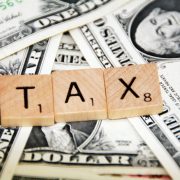Five Advantages to Using a Self-Directed 401(k)
Putting money into a 401(k) is an essential way to plan for retirement. But is it better than other choices? And where does self-directing your 401(k) enter into the picture? Let’s look at five key advantages to using a Self-Directed 401(k) that you can immediately use once you start investing:
Advantage #1: Tax Deductions
Using a 401(k)—whether it’s self-directed or not—will yield you immediate tax advantages. Being able to deduct the money you put into retirement is a great way to save money right away, which helps incentivize you to put more money aside for retirement. Although this is not like a Roth IRA arrangement, in which you will put aside money and then have it grow tax-free even upon withdrawing it in retirement, it’s still a great way to get started with a retirement plan. Having that money saved come tax-time will make an immediate improvement in your budget.
Advantage #2: High Limits
For anyone who’s really aggressive about their retirement knows that a 401(k) is a nice opportunity to put aside as much money as possible. If you live on far less than you earn, using a Self-Directed 401(k) means that you can make high contributions that accelerate your retirement plan into hyperdrive. For example, if you have a Self-Directed Solo 401(k), you may find that your total contribution limits can be as high as $56,000 for 2019.
Advantage #3: Creditor Protection
Let’s say that your retirement plan is humming along, but your personal financial situation is not on such solid ground. When you have a 401(k), you will have a remarkable amount of protection from creditors. Not only is the 401(k) separate from your personal finances (which is why you cannot stay in a home you purchase through the 401(k), for example), but you may have some protection from tax liens, as well.
Advantage #4: Flexibility
Here’s one thing you can use from a Self-Directed 401(k) that you might not get when you are using an employee plan: flexibility. Because the IRS does not limit what sorts of retirement assets you can hold in a 401(k), but rather says which ones you cannot hold, you will have a wide range of options for retirement investments. That includes real estate, tax liens, precious metals, and even private company stock.
Holding these kinds of assets gives you more flexibility as an investor. It also means that you can expand your portfolio to hold a wider net of asset classes. Rather than relying solely on the performance of the Dow Jones Industrial Average for your retirement, you can set up alternative plans for yourself, such as having the 401(k) account collect rent from tenants. With a properly diversified portfolio, you will have your retirement on much more solid financial footing when it comes time to start taking required minimum distributions.
Advantage #5: Helping with Your Tax Bracket
Let’s say that you have a high income, but you do not believe that you will need such a high income to maintain your current level of comfort in retirement. Saving money on your deductible contributions is a great way to maximize your current value, sure. But if you anticipate having plenty of financial wiggle room in retirement, being able to pay taxes on those Required Minimum Distributions will mean you did a good job with planning your retirement. You will have given yourself a cushion by investing smartly over the lifetime of the 401(k). This is why long-term planning is essential.
Interested in learning more about Self-Directed IRAs? Contact American IRA, LLC at 866-7500-IRA (472) for a free consultation. Download our free guides or visit us online at www.AmericanIRA.com.






